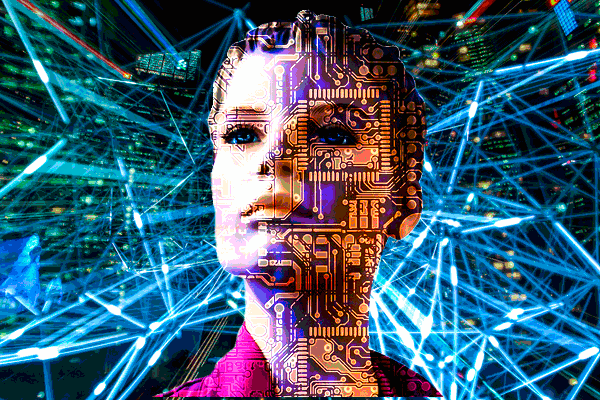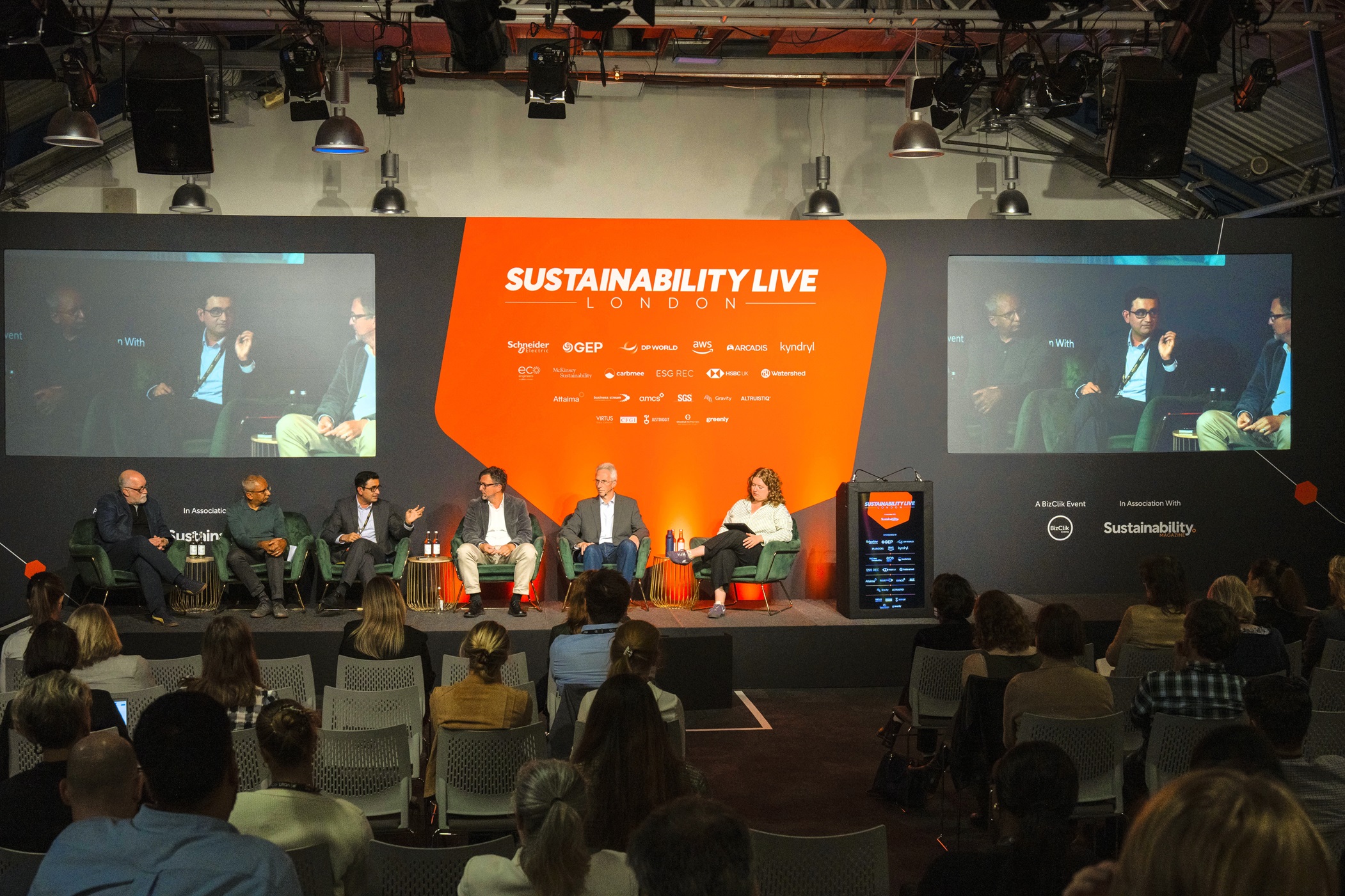Can AI make sustainability measurable, credible, and scalable? That question now sits at the heart of today’s business agenda. AI is already transforming how organisations tackle some of the world’s most urgent sustainability challenges. From emissions tracking to supply chain optimisation, it is proving to be one of the most powerful drivers of progress.
I recently had the opportunity to share perspectives on this topic at the Sustainability LIVE Conference in London, during a panel discussion on AI in Sustainability. The conversation highlighted both the opportunities and the responsibilities that come with bringing AI into this space.
A Gamechanger in the Making
The impact of AI is real and growing, although its adoption is not yet consistent across industries. In sectors such as energy, logistics, agriculture, and manufacturing, AI is already delivering tangible results by reducing waste, cutting emissions, and improving efficiency. Supply chains are also being reshaped through AI, enabling faster, risk-informed decisions that balance cost and sustainability.
For example, AI-powered building management systems are cutting energy use by double digits without compromising performance, and a recent article highlighted how AI is enhancing the performance of electrical grids, reducing fuel use in shipping, and detecting invisible greenhouse gas leaks.
AI is not the answer to everything, but it can become one of the strongest enablers of sustainability. This moment feels like an inflection point. To unlock its full potential, however, organisations need the right infrastructure, governance, and mindset.

AI: Opportunity with Responsibility
At Intertek, we view AI as both an opportunity and a responsibility. Adopting AI is the easy part; governing it responsibly is the real challenge. Without proper controls, organisations risk ethical missteps, regulatory non-compliance, and operational failures.
This is why Intertek has taken a leadership role with ISO 42001, the world’s first standard for Artificial Intelligence Management Systems. We are proud to be the first certification body accredited globally by JASANZ to certify organisations against this standard. Alongside this, our Intertek AI² solution suite provides assurance across the full AI lifecycle, ensuring that AI systems are safe, transparent, and aligned with sustainability goals.
Through these initiatives, we are helping clients build trust and resilience in their AI and sustainability journey, at a time when regulatory and social expectations are evolving rapidly.

Key Risks and Challenges
Despite its promise, the use of AI in sustainability comes with challenges:
- Data quality. Sustainability data is often fragmented across systems and geographies, and incomplete datasets undermine AI-driven insights.
- Skills and adoption. AI can only deliver results when teams understand it, trust it, and use it effectively.
- Transparency and governance. As companies use AI to support sustainability claims, regulators, investors, and customers will demand evidence that those claims are accurate and auditable.
This is where assurance is critical, giving businesses the credibility they need to demonstrate real progress. And with the new requirements from regulators and mounting pressure from the stakeholders, the need for reliable, auditable ESG data is only increasing.

Balancing Energy and Benefits
AI can be resource-intensive, but it also enables efficiency gains at scale, from smarter energy use to waste reduction and faster emissions cuts. The energy required to run AI must be outweighed by the sustainability benefits it delivers. Governance and measurement are key, and assurance frameworks help organisations make those trade-offs visible and accountable.
The Importance of Data
For AI to deliver real value in sustainability, organisations need consistent, high-quality, and well-structured data across operations, suppliers, logistics, energy use, and emissions. AI thrives on scale and accuracy, but fragmented or incomplete data limits its effectiveness. In many cases, improving data readiness is the essential first step before AI tools can be deployed effectively.

The Evolving Role of Sustainability Teams
AI will elevate the role of sustainability teams, giving them greater influence over business decisions. These teams already play a central role, but AI will allow them to shift their focus from manual data collection to strategic leadership. Freed from repetitive reporting, they will be able to spend more time on scenario planning, real-time insights, and shaping long-term initiatives.
At the same time, AI itself must be governed with sustainability in mind. Transparency, fairness, and accountability will be vital. Standards such as ISO 42001 and solutions like Intertek AI² are essential to ensuring that AI is embedded responsibly and aligned with broader sustainability objectives.

Closing Thought
AI is not a silver bullet, but it is one of the most powerful enablers we have to accelerate sustainability progress. The organisations that combine AI innovation with strong governance and independent assurance will not only meet their sustainability goals faster, but they will also set the pace for industries worldwide.
The real question now is whether organisations are ready to move past doubts and embed AI with strong governance into their sustainability journey.












/Passle/5e4a7839abdfeb03584d01f6/SearchServiceImages/2025-02-14-21-32-49-005-67afb681bf3dfe041fe5a4fc.jpg)
/Passle/5e4a7839abdfeb03584d01f6/MediaLibrary/Images/2025-06-19-17-29-48-383-6854490cf62ee5a43b81c17f.jpg)
/Passle/5e4a7839abdfeb03584d01f6/SearchServiceImages/2026-02-17-14-12-50-803-69947762b849a0bd414e259c.jpg)
/Passle/5e4a7839abdfeb03584d01f6/SearchServiceImages/2026-02-16-20-54-01-203-699383e92a3147bfceee0000.jpg)
